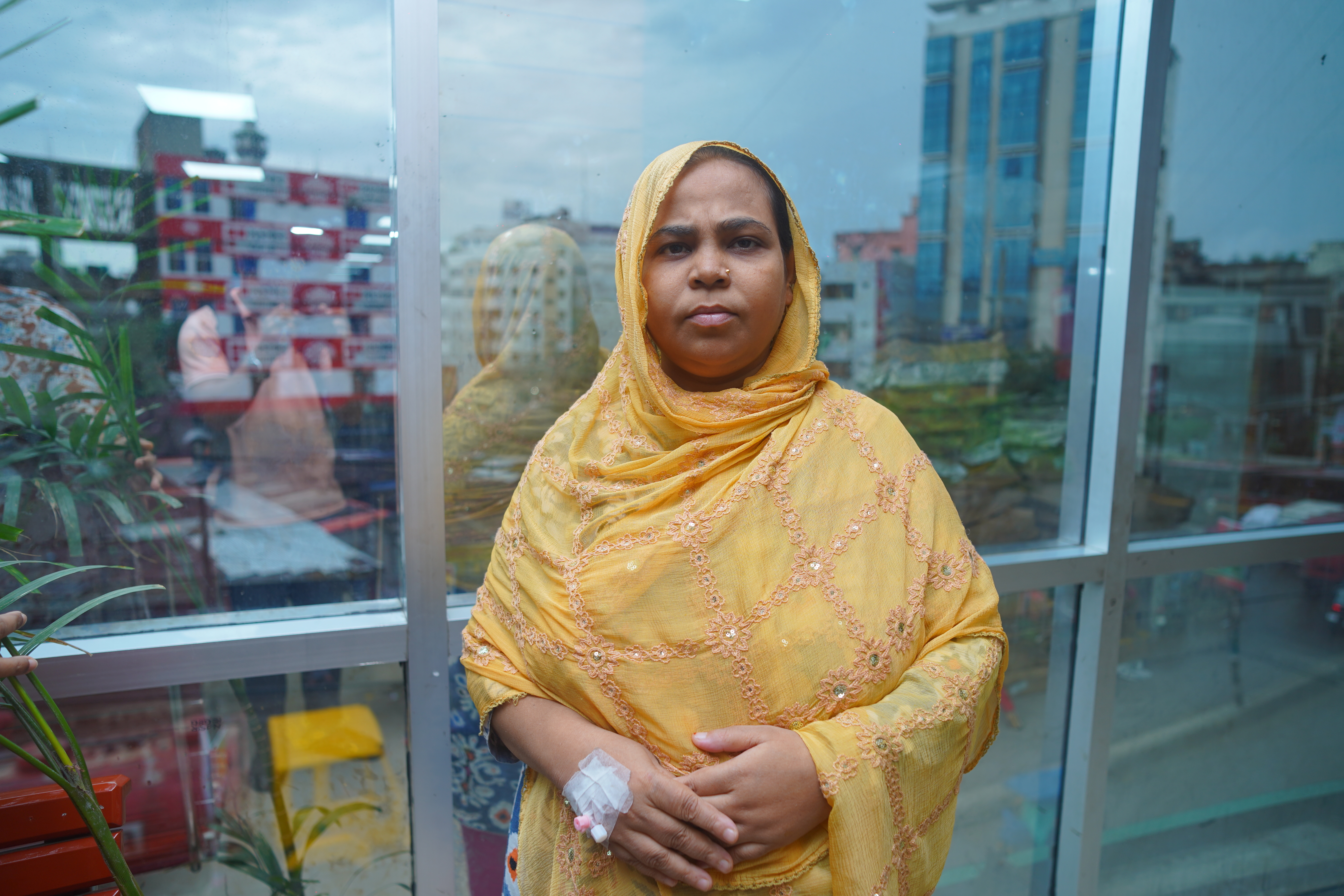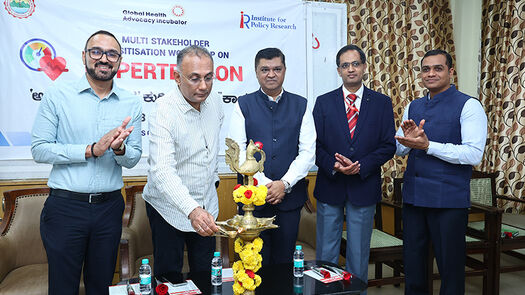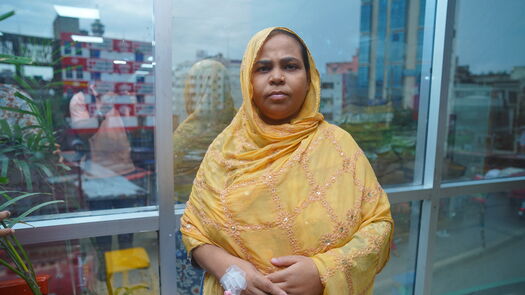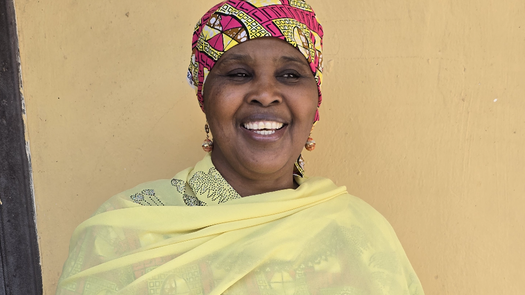November 19, 2025
September 29, 2025
Shafali’s Diagnosis and the Hidden Dangers of Neglected Hypertension in Bangladesh

What started as a routine pregnancy check-up 16 years ago has become an important lesson about the the hidden dangers of untreated high blood pressure in Bangladesh and a stark reminder of the Word Heart Day theme — “Don’t Miss a Beat.”
Shafali is a 49-year-old homemaker and mother of four who lives in Dhupkhola, Gendaria, Dhaka. As team members from the Global Health Advocacy Incubator’s (GHAI) Noncommunicable Disease Program and colleagues of partner organizations in Bangladesh observed during a patient advocacy visit, she, like many women in her community, has dedicated her life to caring for her family and household, neglecting her health in the process.
16 years ago, Shafali was expecting her third child when doctors delivered unexpected news during a routine prenatal visit: she had hypertension. “I never imagined I had high blood pressure,” she recalls. “But when I went for a check-up during my pregnancy, they told me it was high.” The diagnosis was confirmed through additional blood pressure measurements at a local pharmacy, prompting her to seek a medical consultation for proper evaluation and treatment.
Following her diagnosis, Shafali began taking prescribed medication and maintained consistent follow-up care with her physician at a government hospital. “We had financial struggles at that time. Availing free treatment at the government hospital was such a boon. I took my medicines regularly because I knew it was important for me and for the baby I was carrying,” she explains.
Over time, as Shafali got so busy taking care of her household, her adherence to her treatment and care began to decline. “I stopped going to the government hospital,” she admits. “Sometimes I skipped doses. I thought I was doing okay.”
Five years later, Shafali experienced a medical emergency that required immediate hospitalization. She arrived at the hospital’s emergency department with severly elevated blood pressure readings: 250/100 mmHg. She was admitted to the Coronary Care Unit (CCU), where doctors urgently had to administer a spray under her tongue to stabilize her condition. “That was my first real scare,” she says. “I realized then that I had ignored my condition for too long.”
Despite the warning signs, Shafali was too busy taking care of her family and she wasn’t about to be consistent with her treatment in the years that followed. Over time, poorly controlled hypertension led to kidney damage, a common but often hidden consequence of long-standing high blood pressure.
Several months ago, Shafali’s health declined rapidly. A medical evaluation confirmed a diagnosis of end-stage renal disease, where she was advised to begin immediate dialysis treatment.
To faciliate dialysis, they had to place a central venous catheter (CV line) . “This CV line is very painful,” Shafali explains, her voice breaking. “It’s hard to bear, both physically and mentally.” Each dialysis session costs the family 3,000 taka (US $24.55), an emotional and financial burden they now endure multiple times a week.
Sitting beside her husband, who tirelessly supports her through every appointment, Shafali reflects with regret: “If I had been more cautious about my hypertension… if I had taken my medicines regularly, maybe this day wouldn’t have come.”
Her story reminds us that chronic conditions like hypertension can be easily managed. But if neglected, the consequences can be severe and life-altering.
Shafali’s message to others is simple yet powerful: “Don’t wait for a crisis. Take care of your health before it's too late.” This is a message GHAI will continue to promote as it works alongside Bangladeshi partners such as the National Heart Foundation of Bangladesh (NHFB), PROGGA (meaning “Knowledge for Progress”) and the government to ensure life-saving hypertension medicines and care reach the people who need them most, especially in rural areas.



